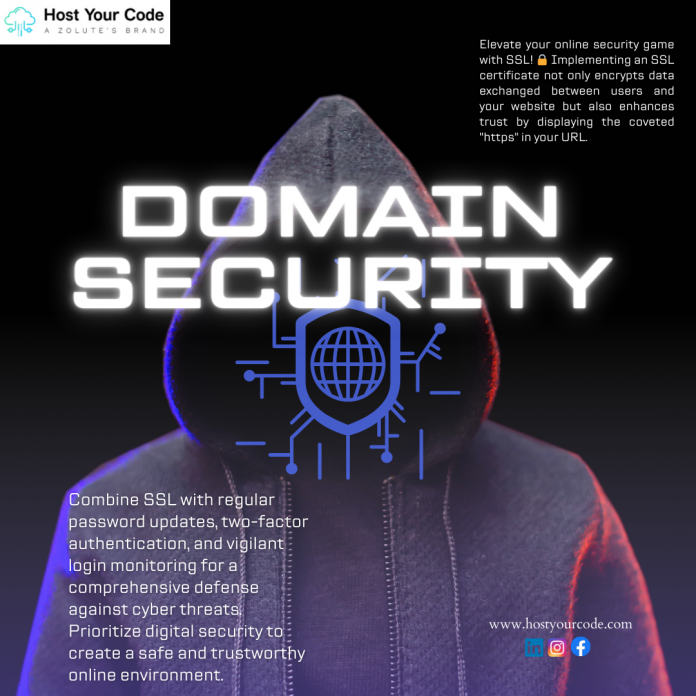In the ever-expanding digital landscape, your domain serves as the gateway to your online presence, making domain security an imperative aspect of managing and safeguarding your digital identity and reputation. Whether you’re involved in e-commerce, personal blogging, or running a business website, understanding and implementing domain security measures is crucial to protect sensitive information and ensure the trust of your audience.
The Foundation: Domain Name Registration
The first step in establishing your online identity is choosing and registering a domain name. Selecting a memorable and relevant name is essential, but equally important is securing it from potential threats. Opt for reputable domain registrars that offer secure and encrypted registration processes. Consider using a privacy protection service to shield your personal information associated with the domain from public view, reducing the risk of identity theft or phishing attempts.
Hosting Security: The Backbone of Your Website
Once you have your domain, the next critical step is choosing a reliable web hosting provider. A secure hosting environment ensures that your website remains operational and protected against potential cyber threats. Look for hosting services that offer robust security features such as firewalls, regular backups, and secure data centers. Additionally, opt for providers that offer SSL certificates to encrypt data transmitted between your website and users, enhancing overall security.
Website Design and Security Integration
When building your website, security should be integrated into the design and development process. Choose a website builder that prioritizes security features. Ensure that your content management system (CMS) and plugins are regularly updated to patch vulnerabilities. Implement strong authentication measures for access to your website’s backend, reducing the risk of unauthorized access.
Email Hosting Security: Protecting Communication Channels
Many businesses rely on email communication for various purposes, making email hosting security paramount. Select an email hosting service that provides encryption for emails in transit and at rest. Implement strong password policies for email accounts and educate users about phishing threats to prevent unauthorized access. Regularly monitor and update your email security settings to adapt to evolving cyber threats.
Domain Extension Considerations: .com, .net, .org, and More
When choosing a domain extension, commonly known as a top-level domain (TLD), consider the nature of your website and your target audience. While .com is widely recognized and popular for commercial purposes, .net is often associated with network-related services, and .org is commonly used for non-profit organizations. Each TLD comes with its own set of considerations and security implications, so choose one that aligns with your brand and audience expectations.
Regular Security Audits and Monitoring
Domain security is an ongoing process that requires regular audits and monitoring. Utilize security tools and services to scan for vulnerabilities, malware, and suspicious activities. Set up alerts for any unauthorized changes to your domain settings, ensuring that you can respond promptly to potential security incidents. Regularly review access logs and monitor website traffic patterns to detect and mitigate potential threats.
In conclusion, domain security is a multifaceted aspect of managing your online presence that encompasses domain registration, web hosting, website design, and email hosting. By prioritizing security at every step, you not only safeguard your online identity and reputation but also build trust with your audience. Stay proactive, keep abreast of security best practices, and invest in reputable services to fortify your digital fortress against the ever-evolving landscape of cyber threats.





































